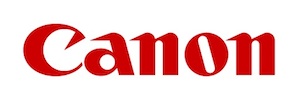Cary Sherburne: Hi. I’m Cary Sherburne, Senior Editor at WhatTheyThink.com and I'm here with Robert Carrier of Pulp, which was at one point a commercial printer, a general commercial printer.
Robert Carrier: Yes. At the end of 2007, B&B Printers was gone forever in favor of Pulp.
Cary Sherburne: Which was a big rebranding effort for you with the help of an agency. And what—maybe you could talk a little bit about what the drivers were to make that change and then what are some of the things that you’ve done to make that a reality.
Robert Carrier: I think the biggest driver for change was to eliminate print from our name and from our brand because as we go through life, as we go through the time, print becomes more and more relevant. Our print, our offset print revenues are down 50 percent over 2007 this year, and we see no way of reversing that trend. And it’s a good thing we foresaw that, you know, in 2007 because we took on these new marketing technologies, these things that were given to printers as a way to save their businesses as this trend continued.
So that’s the big reason we changed our name and the things that we did over, you know, over the last three years, the transition that we went through over the last three years, to get to where we could call ourselves—I don’t know if I’d call us a marketing services provider or not because I don’t necessarily agree with that title—but to move us away from print and towards something different.
Cary Sherburne: So what are some of the things that you are offering, what are some of those different things? Because, you know, you have a lot of folks that are saying oh, you know, I understand what that means, and then they’re putting in point solutions but they’re not necessarily addressing what the customer is really looking for from an integrated, holistic kind of perspective.
Robert Carrier: And that’s one thing, and you’re right, that’s one thing that came out today in the segment that I was speaking in, was how do you know what software to use, what technology to use, who’s doing this. And at the end of the day, the technology is not as important as the solution that you’re bringing to the customer, as the pain you’re taking away from them. And those are the things that we look for. We don’t look for where to apply the technology, we look for where’s the problem, how do we solve it, and how do we—and then what tools do we have to apply to that problem to solve it. If we don’t have those tools can we acquire them, do they exist.
Cary Sherburne: That’s a good point.
Robert Carrier: So that’s the thing. But I believe that all of these things, these tools that we use, print and the other tools that we use, while they’re good money makers at the moment, they’re eventually going to become commoditized. They’re going to become a commodity just like print. I think that—someone I spoke with last night put it best when we had this conversation—in business they say cash is king, but in marketing today, content is king. How you deliver it is all over the place, but if you can’t provide your great content, great content that people are going to want to read, then the delivery mechanism is irrelevant.
Cary Sherburne: And the delivery mechanisms are going to continue to change and evolve. I mean just look what’s happened with the Tablet computing environment in just a few short months.
Robert Carrier: Exactly, exactly, yeah.
Cary Sherburne: Yeah. Well, it’s an exciting time and it sounds like you’re positioned to take advantage of this excitement.
Robert Carrier: Well, we’re really transitioning our company to really put the, you know, the methods that we talk about delivering this content, whether they be print or cross-media or social or whatever, those methods to the back of the conversation. Then we’ll talk about the content and the kind of solutions that the content can bring our customers.
Cary Sherburne: Great. Thank you.

 Official camera partner of WhatTheyThink and the drupa daily.
Official camera partner of WhatTheyThink and the drupa daily. 












